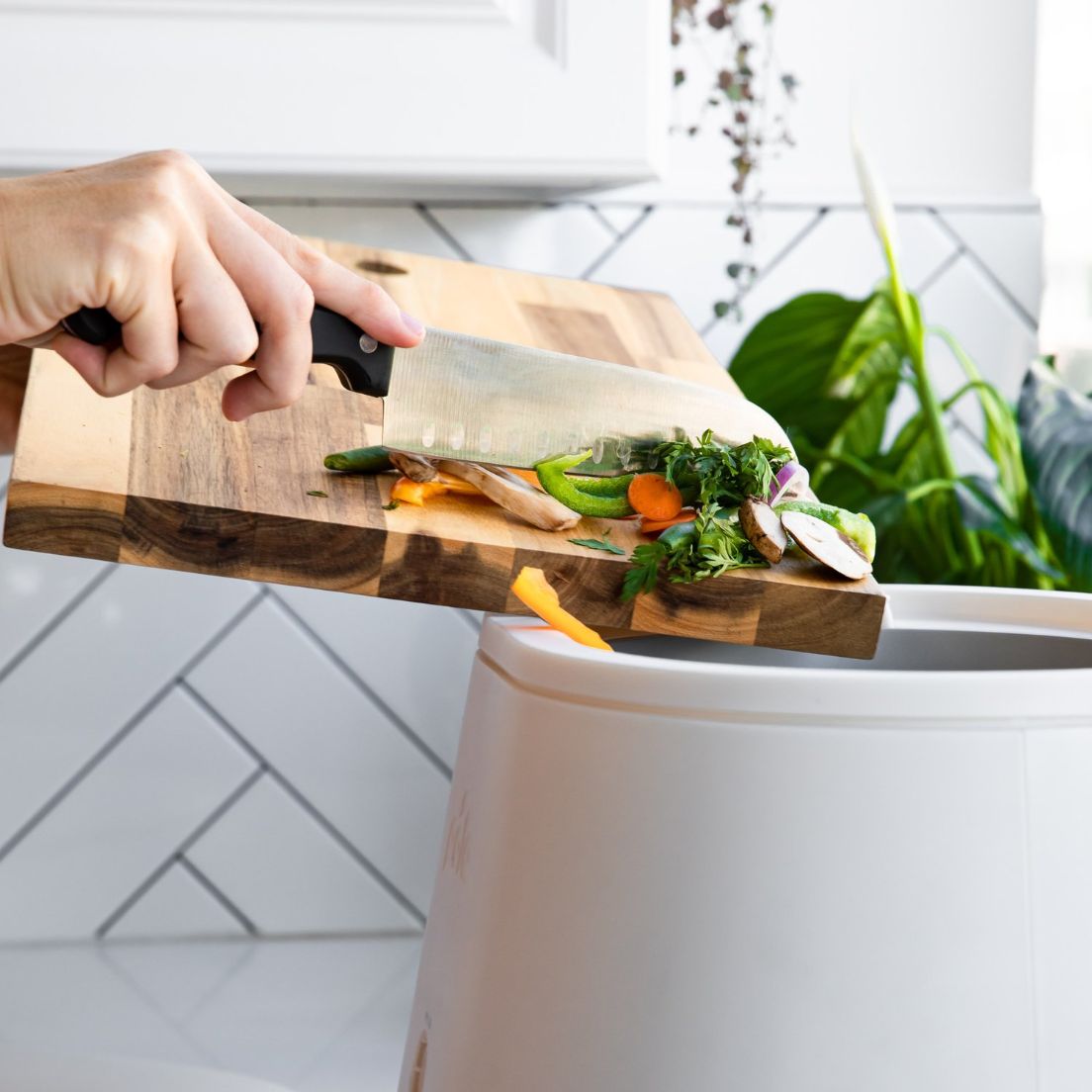
Fertilizer is an essential component to any successful garden. If you’re not familiar, fertilizer is material containing nutrients that help plants grow and thrive. It’s one of the most effective ways to add nutrients to soil, as plants need a mixture of about 20 different elements and minerals. This includes a few provided by air and water exposure and then a mixture of macronutrients and micronutrients. Plants can get these nutrients from both organic fertilizers and chemical fertilizers, but that doesn’t mean the two types are interchangeable.
Though many people use inorganic fertilizers for convenience, there are many natural alternatives that allow you to enjoy the various benefits of composting. This includes healthier plants, reduced food waste, smaller carbon footprint, and much more. To help you make the change, we’ll cover several major topics and questions concerning fertilizers, such as:
- Why use alternatives to synthetic fertilizers?
- 9 alternatives to fertilizer that will enrich your plants
- So, which is the best natural alternative fertilizer?
Let’s not get into the different kinds of eco-friendly fertilizers just yet. First, let’s answer the most important question of all. Why should you bother using alternatives to the synthetic fertilizers you find at your local garden center?
Why use alternatives to synthetic fertilizers?

Synthetic fertilizers can nourish plants, but they can also do more harm than good. Unlike organic fertilizers, chemical sprays and liquid fertilizer can kill important microorganisms in the soil that convert plant remains into organic matter. They can also leach into groundwater and cause water pollution.
The chemicals that you introduce to your soil matter. They have the power to nourish your plants and protect them from attacks by insects and disease. However, they can also pollute groundwater and deplete soil of its natural nutrients. Synthetic fertilizers are packed with these potentially harmful chemicals, including sulfur, ammonium nitrate, and phosphate minerals. The good news is you can enjoy all the benefits of fertilizer without the downsides by option for eco-friendly alternatives you can prepare at home for your vegetable gardens.
9 alternatives to fertilizers that will enrich your plants
Plant nutrition is very complex, as it involves soil ph, soil moisture, microbes, fungi, and more. Thankfully, you only need to understand the basics to help your plants thrive. The organic fertilizers listed below offer at least some of the macronutrients and micronutrients your plants need, without posing any risk to soil health or the environment. This list includes alternative composting methods, food scraps, yard waste, and much more!
1. Tree leaves

Don’t bother bagging up your fall leaves this year. You can use them for your garden instead! Leaves have a lot to offer your plants, as they contain many trace minerals and retain moisture. You can add them to your soil by tilling them, mixing them into potting soil, or using them as mulch.
Why this is a good fertilizer alternative: Tree leaves don’t just nourish your plants. They can also attract earthworms, which turn soil and help plants grow stronger.
2. Lomi dirt

Lomi is an electric composter that allows you to convert food scraps into nutrient-rich dirt. To create this dirt, all you have to do is put your food waste in Lomi and activate its grow cycle. The device will then break down your scraps with abrasion, oxygen, and heat. This process create a nourishing dirt that you can mix with soil at a 1:10 ratio for your plants. Of all the ways to use Lomi dirt, this method is among the most popular.
Why this is a good fertilizer alternative: Part of what makes Lomi such a great organic fertilizer is that it’s really straightforward. This kitchen composter makes indoor composting as easy as can be.

3. Weeds

We typically view weeds as a nuisance, but they can actually be used to create an effective fertilizer. Like lawn grass, weeds are green compost, which means they’re high in nitrogen. Nitrogen supports plant growth and can also be used to balance the level of moisture in your garden or compost pile.
The only problem with using weeds as fertilizer is that they could cause new weeds to grow once reintroduced to your soil. You can prevent this by making a weed tea. Simply put your weeds into a bucket until the bucket is a quarter full. Fill the rest of the bucket up with water and let the weeds soak for about two weeks. When the water turns brown, your weed tea is ready to be poured on your garden.
Why this is a good fertilizer alternative: Weed tea is a fantastic homemade fertilizer for plants. It’s free, easy to make, and you can nourish a relatively large garden with a relatively small amount of weeds.
4. Egg shells

Egg shells are great organic fertilizers. They’re loaded with calcium, which nourishes plants while moderating soil acidity. There are three popular ways to make egg shell fertilizer. Once they’ve been washed and dried, you can crush your egg shells into a fine powder with a rolling pin. You could also grind the egg shells with a coffee grinder or steep them to make a fertilizer tea.
Why this is a good fertilizer alternative: Egg shells are unique for their high amounts of calcium, which is good for your soil. You’d need a lot of them to make a meaningful impact, but this shouldn’t be a problem if your household enjoys eggs.
5. Coffee grounds

The idea of increasing your soil’s acidity might sound bad, but acidic soil can be really beneficial for some plants. Blueberries and tomatoes, along with acid-loving flowers like hydrangeas and daffodils, do very well in acidic soil. You can add some acidity to your soil with recycled coffee grounds, which you can sprinkle on top of your soil. Alternatively, you can create a “coffee” using the grounds to pour onto your garden.
Why this is a good fertilizer alternative: Coffee grounds are great because they introduce the right kind of acidity to your soil. The acidity is natural and eco-friendly, unlike the toxicity of inorganic fertilizers.
6. Manure

Manure is one of the most well-known organic fertilizers out there. This decomposed animal waste can be bought at your local garden center or derived from your own animals. Animal manures are so beneficial for plants because it’s high in nitrogen and many other valuable nutrients. That said, you shouldn’t just dump piles of manure into your soil.
Unlike coffee grounds, raw manure is so acidic it could actually burn your plants. That’s why you should only use composted manure over raw manure. Composted manure is less acidic and can support beneficial microbes without harming your plants. The composting process also kills any weed seeds that are often found in raw manure.
Why this is a good fertilizer alternative: Manure is organic, affordable, and easy to access. Chicken manure, cow manure, sheep manure, and horse manure are all good options.
7. Fish

The idea of using fish as fertilizer may seem unusual, but fish scraps have been used to nourish plants for thousands of years. There are many reasons to use fish as a natural fertilizer. Fish is loaded with nitrogen and trace minerals that give plants a nutritious boost.
Some Native American horticulturalists would actually bury them at the base of each plant to help them grow. You can do the same, though you should grind up your fish beforehand with a hand grinder or stick blender. Then you just bury the fish pieces at the roots of the plants that you think need a boost.
Why this is a good fertilizer alternative: Being able to bury a fish directly into the soil is a very simple and easy garden composting method. This method will also reduce your food waste.
8. Corn gluten meal

Corn gluten meal is one of the many organic substances that you can use to make your own fertilizer. This powder is a byproduct of the corn milling process. Though typically used as animal feed, it has become a trusted fertilizer for gardeners everywhere. It’s distinct from chemical garden fertilizers in that it doubles as a safe pre-emergent herbicide without damaging the soil or groundwater. Corn gluten meal can also help prevent weeds from popping up.
Why this is a good fertilizer alternative: Corn gluten meal is one of many effective organic fertilizers in part because it contains a fairly high amount of nitrogen, which helps soil moisture and plant growth.
9. Bone meal

Bone meal is derived from animal bones. Once steamed, the bones are ground into a powder that can be sprinkled on top of plants. Like the other fertilizers listed, bone meal fertilizer can help you plants grow stronger. Bone meal is rich in calcium and phosphorus, which are essential minerals that aid photosynthesis, seed growth, and other important plant processes.
Why this is a good fertilizer alternative: The phosphorus in this powder doesn’t just nourish plants. This vital nutrient can also improve disease and pest resistance.
So, which is the best natural alternative fertilizer?

The best natural fertilizers for your garden vary based on how much time and effort you’re willing to put in. If you want to create garden fertilizer using organic materials with little effort, the Lomi electric composter is for you. Lomi can turn your food scraps into dirt filled with beneficial nutrients.
This kitchen composter saves you from having to make weed teas, blend fish, or other tasks you may not have time for. By putting organic materials like banana peels, lettuce, and other greens into Lomi, you can make your own garden fertilizer within hours. This organic fertilizer alternative is ideal for beginners learning how to garden indoors and for people who want to live a more eco-friendly lifestyle. By skipping the inorganic fertilizer and using Lomi regularly, you can reduce the carbon footprint of your food waste by over 80%!
You won’t regret swapping out your chemical fertilizers for any of the organic fertilizers listed above. Natural garden fertilizer can be very affordable and easily accessible. It’s also much more environmentally-friendly and will serve your soil and plants better in the long run.
Of course, there are so many other ways to better your gardens while living an eco-friendly lifestyle. We offer lots of content to help you on your journey towards a greener and less wasteful way of living. This includes articles on how to move towards a zero-waste kitchen through appliances like Lomi. If you’re more interested in learning about how to improve soil structure and nourish your vegetable garden, please check out our guide on how to mix soil.
Written by: E Sawden
